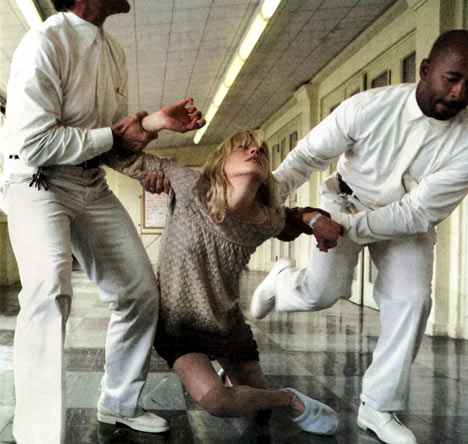 1927-28 saw the publication of a full 12 volumes of The Class Room Teacher by Corinne A. Seeds, A.M., Principal of the Training School, Assistant Supervisor of Training, University of California at Los Angeles, with the cooperation of Milo B. Hillegas, Ph.D., LL.D., Professor of Education, Teachers College, Columbia University.
1927-28 saw the publication of a full 12 volumes of The Class Room Teacher by Corinne A. Seeds, A.M., Principal of the Training School, Assistant Supervisor of Training, University of California at Los Angeles, with the cooperation of Milo B. Hillegas, Ph.D., LL.D., Professor of Education, Teachers College, Columbia University.
What a mouthful.
I am not aware that either of these individuals has a blog of their own, and as the series was published almost a century ago, chances are good both have gone to that great Teachers’ Lounge in the sky to mimeograph with the angels, as it were.
The following excerpts are from the first volume, in a chapter titled (dryly enough) “Classroom Control: Methods of Control.” While we often chuckle at antiquated teacher requirements or student behavior issues from days gone by, there are parts of this I find fascinating.
The problem of classroom control is most vital and of outstanding, far-reaching importance. The future welfare of our country depends largely upon the methods of control used upon its future citizens. By these very methods teachers can produce anything from slaves who obey their masters explicitly without thinking, to freemen who make their choices only after careful deliberation and discussion. Thus it is of the utmost importance that teachers should know what types of control are best for the future welfare of a democracy.
Melodramatic much, Corinne?
 Note the assumptions in this introduction to what we’d today call ‘classroom management’ (the change in terminology itself suggests a very different mindset). First, that teachers actually have this much power over their students or anything else – so much so that we’re literally determining the future of democracy. Second, that young people must be molded and trained like pets, or a good horse, to function effectively in the world.
Note the assumptions in this introduction to what we’d today call ‘classroom management’ (the change in terminology itself suggests a very different mindset). First, that teachers actually have this much power over their students or anything else – so much so that we’re literally determining the future of democracy. Second, that young people must be molded and trained like pets, or a good horse, to function effectively in the world.
The idea that the young require careful grooming in order to be useful was not unique to public education; it was more or less ubiquitous until the late 1950’s, when the concept of ‘teenager’ was born. This whole ‘discover their own way’ and ‘follow your dreams’ stuff is relatively new. You may blame or credit the 1960’s as you see fit.
Once they were robots – useful, but stifled. Then they were butterflies, free, but useless. What today?
Our democracy is composed of a conglomerate mass of individuals at all stages of ethical development, from those who obey the laws made by the group for the welfare of all only when they are forced to do so to those unselfish souls who realize that their highest development and happiness are reached only as they consider all and act according to the best interests of the whole group. Midway between these two extremes we find those who obey only because they have been trained to do so, some who conform because of fear of the disapproval of their fellow men, and still others who act in accord because they long for approbation.
Hmmm… does she use all those big words because she longs for conglomerated approbation?
Either way, this essentially holds true today – some follow the rules only when forced, others as long as they believe those rules to be ‘right’. Most are somewhere in between, adjusting with circumstances and personal issues.
It would be folly to assume that one method of control, even the ideal, would prove sufficient to promote the best interests of the group. There should be as many types of control as there are attitudes toward it. While it is necessary at times to use the lower forms of control, yet it should be the hope of the democracy that in the dim distant future, through our methods of education, the ideal can be truly reached – “a government of the people, by the people, and for the people.”
 Such single-mindedness regarding the preparation of our young to become useful citizens! How very ‘spirit of the times’ – post WWI, pre-Depression and pre-WWII. Pretty patriotic for the ‘Roaring Twenties’, you little red, white and blue ‘flapper,’ you!
Such single-mindedness regarding the preparation of our young to become useful citizens! How very ‘spirit of the times’ – post WWI, pre-Depression and pre-WWII. Pretty patriotic for the ‘Roaring Twenties’, you little red, white and blue ‘flapper,’ you!
Here’s my favorite part, though:
The problem of control which the classroom teacher must meet is a miniature of the greater problem which confronts the democracy. It is not easy for the teacher to know how to manage Mexican Pedro, whose father digs in the street, Isadore, the son of the Rabbi, Mary Evelyn, whose mother is president of the philosophical society, and forty others who differ more or less in native and acquired characteristics, so that they may live richly and cooperatively together in their school community and grow into better, happier boys and girls. Like the democracy she should be cognizant of the fact that the highest control is that which comes from within as a result of reason, and she should strive toward that as her ideal. But she should not be utterly crushed if at times she has to resort to coercion in order to promote the greatest good for the greatest number.
Ha! OK, let’s set aside for a moment our 21st century ‘racism-alert’ and our commensurate ‘be-offended-by-everything’ genes. This is an effort to acknowledge diversity, circa 1920’s, and to encourage teachers to recognize the balance between preparing students from very different backgrounds to maintain their individuality while at the same time learning to function in as part of a community.
 I mean, in its own way it’s rather enlightened. Add the emphasis on reason and it’s rather Enlightened as well.
I mean, in its own way it’s rather enlightened. Add the emphasis on reason and it’s rather Enlightened as well.
It’s interesting that she omitted Langston the clichéd Negro, whose father does something manual labor-ish or whatever. Is that a product of the segregation common in many cities at the time, or a choice based on other realities?
In order to meet the control problems found in the typical American classrooms, teachers use methods based upon the following general types or combinations of two or more types:
(1) No control, wherein the children all do as they please.
(2) Teacher control, wherein rules are made and enforced by the teacher.
(3) Group control, wherein rules are made and enforced by the group working together for a common purpose.
(4) Unselfish self-control, wherein each person considers the good of the whole.
This ultra-listy super-scientific-sounding approach to pedagogy and classroom management is what makes so many teacher books onerous even today. It’s partly leftover from the categorization-happy Enlightenment and the love the philosophes had for lists. Today it’s an immediate sign of too much time in teacher school and too much research.
Seriously, when do your kids or anything you try to do in class fit neatly into such categories? Ever?
Next time, we’ll explore true atrocities in the classroom – dangerous projectiles, inappropriate uses of technology, and boys with their feet ON THE STOVE. It’s madness!

RELATED POST: Classroom Management, 1920’s Style (Part Two)
RELATED POST: Classroom Management, 1920’s Style (Part Three)

 One. You have GOT to BREATHE.
One. You have GOT to BREATHE. Two. You’re not stupid.
Two. You’re not stupid. Director’s Cut: Feeling stupid usually indicates you’re not.
Director’s Cut: Feeling stupid usually indicates you’re not.
 Four. Shut yourself up.
Four. Shut yourself up.  Five. Get a planner or agenda of some sort.
Five. Get a planner or agenda of some sort. Six. Choose a few things that won’t take long, do them, and cross them off.
Six. Choose a few things that won’t take long, do them, and cross them off. Seven. When you’re doing a thing, do that thing.
Seven. When you’re doing a thing, do that thing. Eight. When you’re working, work.
Eight. When you’re working, work.
 Ten. Do the parts you can do.
Ten. Do the parts you can do. 

 You’re not entirely wrong. Few of us, teachers or no, like change or higher demands on our time and energy – especially when they come from people who have no idea what we do or what they’re talking about.
You’re not entirely wrong. Few of us, teachers or no, like change or higher demands on our time and energy – especially when they come from people who have no idea what we do or what they’re talking about. 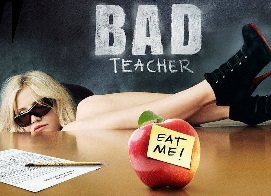 The only way VAM and TLE and other teacher evaluation measurements make any sense or improve anything is if they spur teachers to do a better job. If teachers are capable of doing something better, and aren’t doing it now, the only reasonable inference is that they don’t care enough to improve otherwise.
The only way VAM and TLE and other teacher evaluation measurements make any sense or improve anything is if they spur teachers to do a better job. If teachers are capable of doing something better, and aren’t doing it now, the only reasonable inference is that they don’t care enough to improve otherwise. 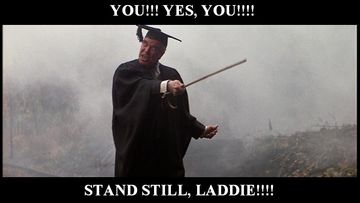 If the solution is ‘raising the bar’ for those entering the classroom, then the problem must be that those choosing education aren’t smart enough to do what they’re hired to do. If that’s true, it’s worth asking what would be useful in drawing ‘smarter’ people into the field – or how to better educate those already willing.
If the solution is ‘raising the bar’ for those entering the classroom, then the problem must be that those choosing education aren’t smart enough to do what they’re hired to do. If that’s true, it’s worth asking what would be useful in drawing ‘smarter’ people into the field – or how to better educate those already willing.  No one wants this job.
No one wants this job.
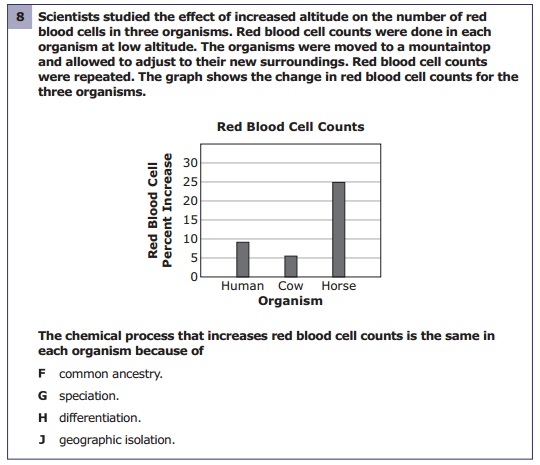


 We can’t vary the curriculum significantly – state law. We can’t afford meaningful, hands-on learning of the sort you keep reading we should be doing, nor can we spare ‘core curriculum’ time to do anything interesting that kids might actually want to explore (and on which we could then build essential universals, like reading and writing and mathematical reasoning) – state law and legislative purse strings.
We can’t vary the curriculum significantly – state law. We can’t afford meaningful, hands-on learning of the sort you keep reading we should be doing, nor can we spare ‘core curriculum’ time to do anything interesting that kids might actually want to explore (and on which we could then build essential universals, like reading and writing and mathematical reasoning) – state law and legislative purse strings. 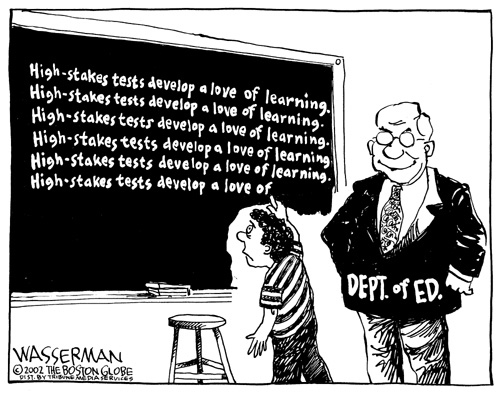 We can’t hold kids with the most potential to real academic standards or expectations of personal responsibility – angry parents, strange cultural ideals about the need to have 102% in everything and never struggle or fail, and administrators who are under a lot of pressure to show that every single child in the district is Top 10%.
We can’t hold kids with the most potential to real academic standards or expectations of personal responsibility – angry parents, strange cultural ideals about the need to have 102% in everything and never struggle or fail, and administrators who are under a lot of pressure to show that every single child in the district is Top 10%. 

